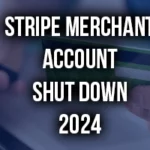Your merchant account can get shut down at any point in time, through no fault of your own.
Are there actions that you can take that will increase the likelihood of getting it shut down? Absolutely; spikes in volume, increased chargebacks, increased refunds, and a variety of other things can contribute.
But even if you do nothing, and you change nothing in your business, you still can have a provider pull the rug out from under you, at any given point in time. This happens to businesses every day, I’ll explain why this happens so often below.
MERCHANT ACCOUNT AGGREGATORS CAN BE RISKY FOR YOUR BUSINESS
The starting point to understanding why this happens is to get the basic differences between stripe, PayPal, and traditional merchant accounts. So companies like Stripe and PayPal, Wepay, and square are all that are considered merchant account aggregators. They operate fundamentally different than traditional merchant account providers. At the core of this is that anybody can use them.
So you get an account turned on immediately, and in an instant, you can accept payments. What that means is that they don’t know who you are, they don’t know what you do, they don’t know what kind of product you have, they don’t know how you sell the product, and they don’t know how you deliver the product. They don’t know if you deliver the product. They don’t know anything about you.
If they have any concerns about risk, the only thing they can do to control risk for themselves is to freeze your account or hold your money. That’s not good or bad. That’s just how that business model works.
The upsides to that are that you can process payments immediately. The downside is that the likelihood of getting shut down immediately is much, much higher than a traditional merchant account.
Aggregators are functional if you want to send money to friends or family or you’re doing a few grand a month. But if you’re doing any sort of substantial volume, they can be a big liability for your business.
Sadly, many traditional merchant account providers operate that way as well. They approve you right away because they want money right away. But obviously, if you have a bigger business, getting closed is a big issue.
EMBRACE MERCHANT ACCOUNT UNDERWRITING
The other side of the spectrum with traditional merchant accounts is to do underwriting. And again, 99% of traditional merchant accounts operate just like Stripe and PayPal, where they do very light underwriting and they get you approved immediately.
The tell-tale sign of that is how quickly you got set up. So if you submit an application for a merchant account, to your credit union, Chase or Bank of America, or a major banking chain, and you get approved immediately, it means necessarily that they didn’t do much underwriting, which means that you’re going to fall into that easy to get closed, later bucket.
What you’re looking for in a merchant account, is the ability to have thorough underwriting on the front end so that they know who you are, what you do, how you operate, and what your business model is.
WHAT DOES EFFECTIVE UNDERWRITING LOOK LIKE?
They will ask you for a few “know your customer” documents, as well as take a look at your processing statements and bank statements for the last 3 months. For businesses doing larger volumes, they may request a few additional documents to properly vet the business.
Merchant account underwriters will look at 3 categories.
-
- Personal history – read credit
- Business history
- Business model
Underwriters will take a look at your business, your website, terms and conditions, and your refund policy. They will understand your product and how you deliver it. That makes the likelihood of getting shut down, much lower later; because they’ve already vetted your business.
EVEN A “GOOD” MERCHANT ACCOUNT CAN BE CLOSED
Even if you have a great merchant account set up that’s done good underwriting, you still can get the rug pulled out from under you. That happens, because so many other factors are going on inside of the banking institution. A new CEO could come in, other c-suite executives, a new risk analyst, or their internal policies as a result could change. Ultimately, they are controlling risk across their entire portfolio. So they might say, “Okay, we want to get rid of a certain industry altogether.”
It likely has nothing to do with you. They just decided they don’t want to do travel companies anymore, or info products. Over time, we’ve seen a ton of that in CBD, but it happens in verticals all the time. A competitor of yours might have done something that has raised a flag for them such as using deceptive marketing practices leading to a spike in chargebacks. That might cause them to close merchant accounts for the entire industry, including your business even if you were in good standing with them for years.
WHAT IS CONSIDERED HIGH-RISK FOR MERCHANT ACCOUNTS
Understand, even if you do really good underwriting and you have a great merchant account, you still at any point in time are at risk of getting shut down. Ultimately, what banks don’t want are surprises. What banks do want is to have a statistically safe business. The whole banking world revolves around the statistical analysis of risk. What they want to do is get rid of the things that they deem to be high risk.
What is high risk? Simply put it’s anything with a higher likelihood of refunds or disputes (chargebacks). That could mean having recurring billing, products or services of subjective quality such as courses or information products, or simply having transactions where the card isn’t present – so, eCommerce, phone sales, etc. Even if your business isn’t necessarily doing all or any of these things, unfortunately, banks don’t care about you as an individual or about you as an individual business.
They care about their aggregate risk at large. So even if you bank with somebody for a very long time, you still run the risk of them closing your account based on statistical risk without hesitation.
WHAT CAN YOU DO TO PROTECT YOUR BUSINESS?
To protect your cash flow and make sure your business can always keep accepting credit cards you need to be working with the right merchant accounts. These are the ones that do effective underwriting. AND you need to have and use multiple merchant accounts so that you are protected. With Easy Pay Direct we will get you set up with the right merchant accounts and transaction routing which automatically distributes your volume across these accounts. That way even if one of your accounts gets shut down the others are still up and running.
WHAT’S YOUR NEXT STEP?
Do you have the right providers? Do you have enough merchant accounts?
We want to make sure you’re working with providers that understand your model – and that your accounts are structured to protect your cash flow.
Just complete our 10-minute application here, or call us at: (800) 805-4949
We are here to make things easier.










